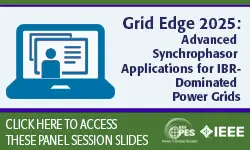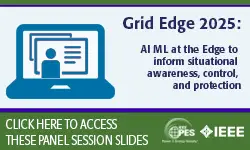Smart Energy Management with Optimized Prosumerism for Achieving Dynamic Net-Zero Balance
Ferheen Ayaz
-
Members: FreeVTS
IEEE Members: $11.00
Non-members: $15.00Length: 00:30:00
01 Feb 2024
This webinar focused on the increasing number of Electric Vehicles (EVs) that have led to rising energy demands which aggregates the burden on grid supply. A few solutions have been proposed to achieve demand and supply balance, for example, using storage systems for storing surplus energy from EVs or scheduling supply from the gird according to varying demand at different times. However, these solutions are costly and their applicability is limited to specific regions and times. This talk proposes a smart energy management solution for a massively electrified road transport network. It comprises of energy supplies from grid, charging stations, distributed renewable sources and EVs connected by 5G-enabled aggregators. This work proposes EVs as prosumers, which are energy consumers but also supply back their surplus energy via bidirectional Vehicle-to-Grid (V2G) technology. We have used machine learning models to forecast hourly energy output from renewable sources, surplus supply from EVs and their demands. A grid cost minimization solution is proposed using Mixed Integer Linear Programming which dynamically alters supply according to demand and energy provision from EVs. The proposed solution also considers penalty charge for CO2 emissions during energy generation. The upper bounds of surplus supply and demand of EVs are theoretically derived. An incentive distribution mechanism is also presented to reward EVs offering their surplus supply and to discourage them to become selfish which is analysed using Prisoner's dilemma game. Additionally, an optimum number of charging stations on a road considering the incentives of EVs and their maximum contribution in supplying energy are estimated. Simulation results show that the proposed solution can effectively meet the demand requirements with increasing number of EVs, even if the supply from grid is limited.


